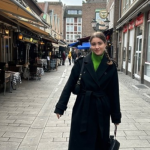Students abroad: Martin at the ANU in Canberra
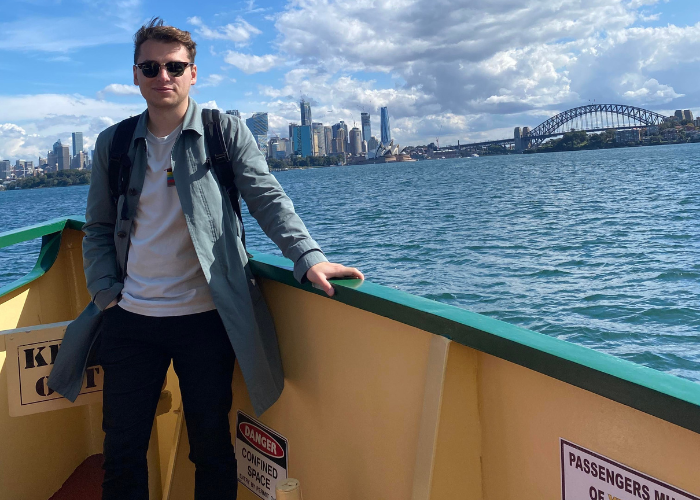
Can you tell us something about yourself? What do you study? Where did you spend your exchange stay?
My name is Martin, I am 25 years old, and I have been studying at FSV UK since 2017. I studied Marketing Communication and PR in my Bachelor, and I am currently doing my Master in Strategic Communication.
I spent an exchange semester in beautiful Australia, in its capital, Canberra.
Why did you choose Australian National University?
My first experience of studying abroad was on an Erasmus exchange in 2020 – unfortunately it only lasted a few weeks and then the pandemic started, so I had to come back early. I was really frustrated at the time, and I knew that I would eventually have to fill the empty space inside me that remained after I was forced to return from Erasmus.
When the pandemic ended and everyone was able to travel again, I wanted more than just a European Erasmus. I looked at the options offered by the faculty and Australia seemed to be the best fit, as the course offer was the right combination of marketing, communication, and management for me.
Were you satisfied with the course offer of the host university?
The courses were of very high quality and challenging. There are 4 compulsory courses for each semester at the ANU, but I was able to choose them according to my personal preferences.
Three out of four courses exceeded my expectations, but the fourth did not, as it was only online and not very useful for me.
After your arrival, did you have to change your study plan a lot?
I did not have to change my study plan at all, everything went smoothly.
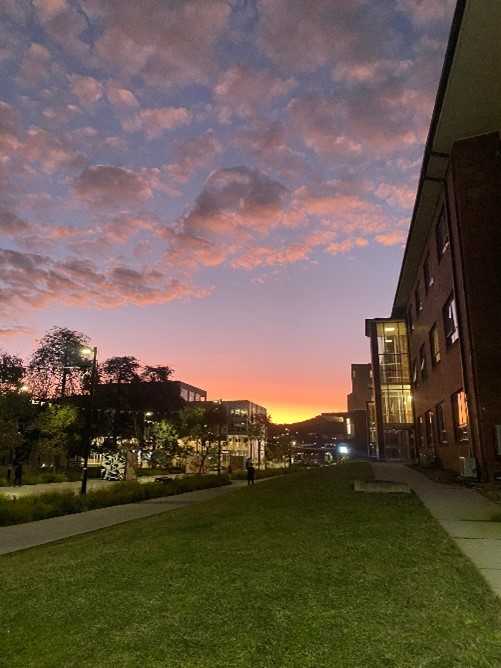
To what extent do the forms of the courses differ from the FSV UK?
Longer lectures allow for more in-depth discussion. We also did a lot of preparation at home, including taking part in group discussions and of course readings.
Where did you stay? Dormitory or private accommodation and why?
I think that finding accommodation can be a nightmare for many exchange students, but in this case everything was really well organised. The ANU guarantees an accommodation option for every exchange student, so all I had to do was choose my preference from the variety of ANU halls and luckily, I got my first choice.
The accommodation was the best – I met great people there, mostly PhD students, and had a great time with them. I had my own kitchenette and bathroom and did not have to share a room with anyone.
I deliberately chose not to go for the cheapest option and went for a private studio, but for those who prefer a more budget-friendly option, shared rooms were available for around $230 per week (mine was $300 per week).
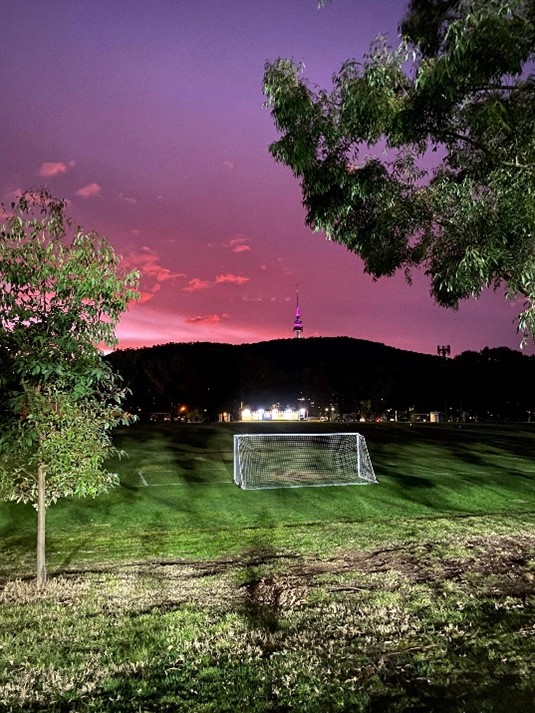
Tell us something regarding your first days. Any acclimatisation problem – culture shock?
I wouldn’t say it was a cultural shock, Australia is quite similar to Europe. It is very surprising that when you land in Sydney after a 25-hour flight, you might think you have just landed in London – until you see the first kangaroo on the highway.
Canberra is much smaller than Prague in terms of population, and frankly the city is pretty dead during the week – although you’d think it would be lively thanks to the university.
And finally – I landed in mid-July, from a hot European summer to a mild Australian winter – but still winter.
Does ANU have buddy system and if so, did you take advantage from it?
I am not aware of it, we have had only a few meetings organised by the International Office.
Would you share with us your favourite memory/ experience?
Definitely all my trips to Sydney have been amazing, it’s a really beautiful city and probably the only city in the world apart from Prague that I would be able to live in.
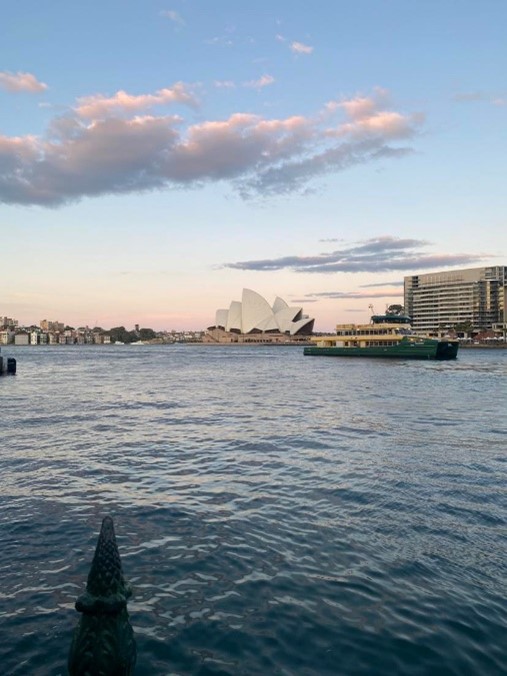
Would you recommend the destination to other students? Would you recommend this type of mobility?
Absolutely! Australia is a country full of warm people, you can really feel free and the quality of education is incredible. It is really worth overcoming the fear of distance.
Australia is quite expensive country to live in. What would be the approximate monthly costs for a student?
Food prices are very similar to those in the Czech Republic. Restaurants are slightly more expensive than in Prague. The most expensive thing is accommodation.
I paid about $300 a week for my accommodation, which meant that my entire university grant went on it. It is possible to get by on $100 a week for food. And most importantly, a “scooner” of beer cost about $6 in cheap pubs.
What’s next? You are in your final year of your Master studies. What are your plans after you finish your studies?
Well, this is not my last year as I have decided to extend it to the 3rd year. I have to come up with a thesis idea soon and write it, as well as concentrate on my job, so I am quite busy 🙂
Last question: Anything IO should do differently or improve to make the preparation for the mobility easier?
I have no reservations about the Czech IO – however, the Australian side could have been prompter when I was dealing with the application and visa process.

